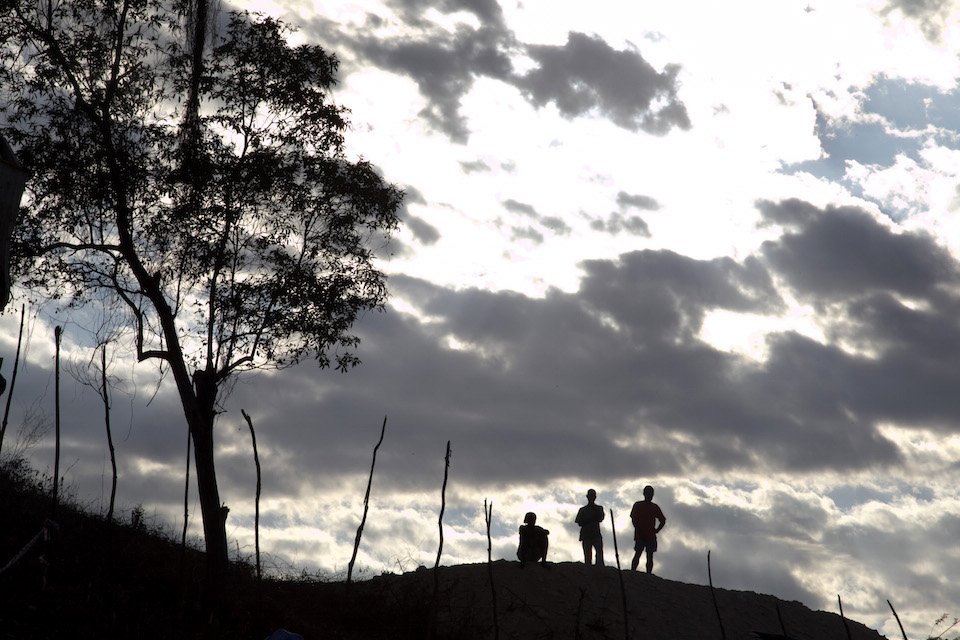"Haiti in 2017 is a different country to that of 2004, the year that MINUSTAH’s mandate began."
Statement by Ambassador Peter Wilson, UK Deputy Permanent Representative to the United Nations, on the Security Council debate on Haiti.

Thank you Madam President, and thank you to Special Representative Honoré for your briefing just now.
I do want to join others in offering my condolences to Egypt for the terrible terrorist attacks that took place over the weekend on Sunday. Our thoughts and our prayers are with you.
At the outset, I think it’s important to set out the progress that Haiti has made over the last thirteen years. In these sessions we often discuss the most pressing, most recent developments, and that can occasionally mean that we lose sight of the overall trajectory of countries that are on our agenda.
For Haiti, that trajectory is upwards.
We’ve seen the professionalization and reform of the Haiti National Police and we’ve seen the security situation improve. We’ve witnessed credible and fair elections, as you’ve just outlined SRSG, leading to the peaceful transfer of power and a return to constitutional order. We’ve all been shocked as Haiti was struck by natural disasters, but we also saw the resilience of the Haitian people and the process of rebuilding.
Now, clearly this is not a story of uninterrupted progress. There is much more to be done, especially on protecting human rights, empowering women, widening access to justice and, of course, on long-term development.
Alongside many others in this Chamber today, the United Kingdom is gravely concerned about the continued presence of cholera in the country. We have contributed over 600,000 dollars to the UN Haiti Cholera Response Multi-Partner Trust Fund. I urge others to step up and make what contributions they can, so that together we can rid Haiti of this horrific disease once and for all.
But despite these challenges, Haiti in 2017 is a different country to that of 2004, the year that MINUSTAH’s mandate began. As President Moïse said in his inauguration speech in February, it is time for MINUSTAH to go.
A great deal has been achieved by the mission in those 13 years and on behalf of the United Kingdom I want to offer our thanks to everyone involved in MINUSTAH and in the UN Country Team for their hard work in securing this outcome. I want to particularly express my thanks to you Sandra, for your service as Special Representative for almost four years.
We want to see a phased withdrawal over the next six months – and a successor mission to continue some of MINUSTAH’s work.
To be effective, that mission must have access to the most appropriate personnel and equipment. It should be underpinned by high quality training and skilled leadership, alongside clear accountability for underperformance and misconduct.
The successor to MINUSTAH, like all peace operations mandated by this Council, must have a clear exit strategy. This exit strategy should be established at the start of the mission – not at its end – and include clear benchmarks over a two year period. Joint analysis and planning with the UN country team is critical, as is the gradual but steady handover of responsibilities to Haiti’s government and national institutions.
A two-year exit strategy should safeguard Haiti from the risk of a sudden and hastily planned withdraw or, quite differently, the quagmire of a mission that never ends.
This does not signify the end to the UN’s commitment to Haiti. And it is not an end of the United Kingdom’s commitment either.
Even with the leadership and resilience of its people, Haiti will still require development support from the international community for peace to be sustained.
The decisions we make in this Council are critical to this goal. We need to select the right UN tools to provide the right support – and we need to show the courage and discipline to let Haiti stand on her own two feet.
Thank you.